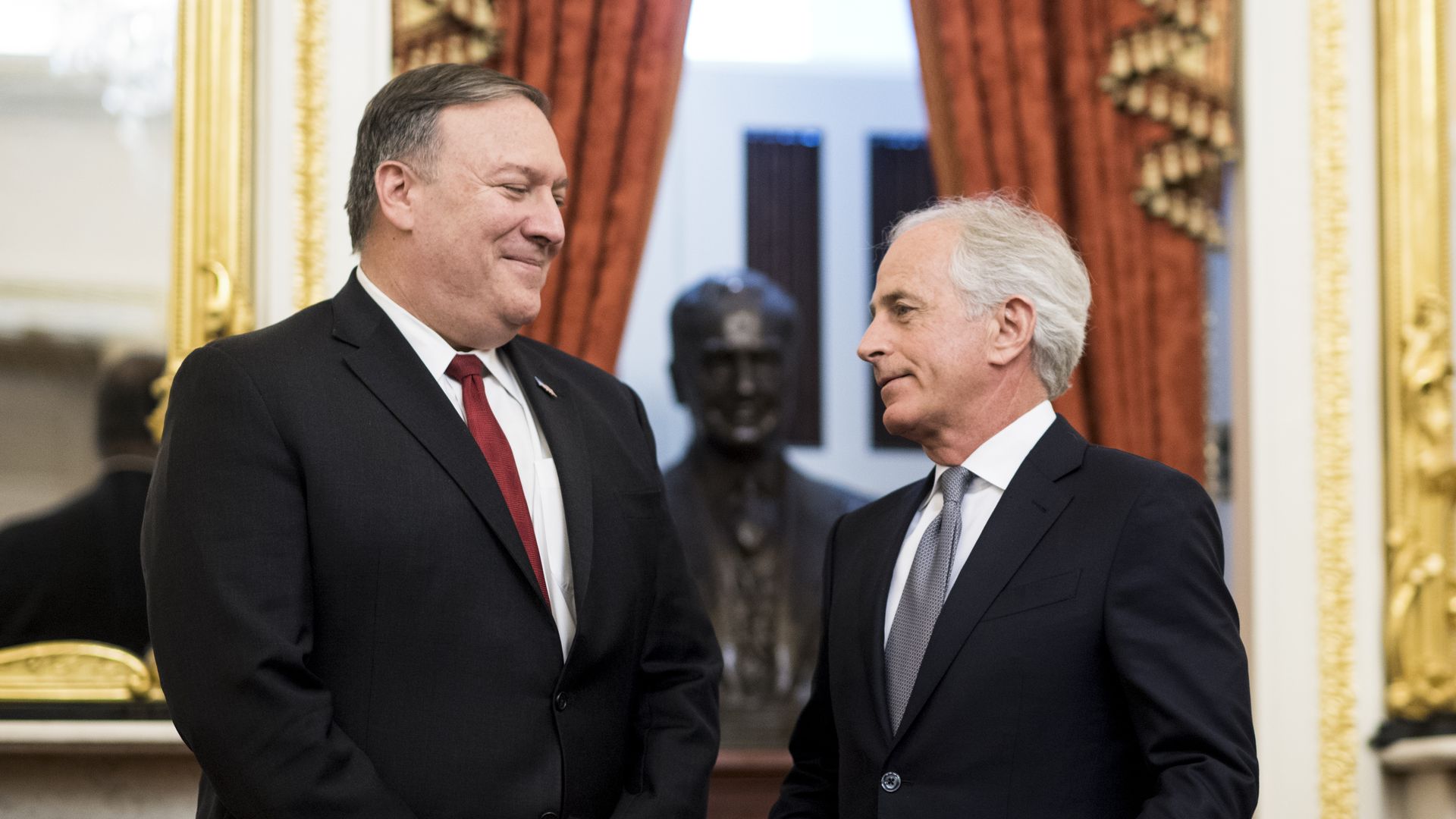Updated Apr 12, 2018 - Politics & Policy
Expert VoicesU.S. refugee policy on the line in Pompeo confirmation hearing
Add Axios as your preferred source to
see more of our stories on Google.

Mike Pompeo, CIA director and now Secretary of State designate, talking to Senator Bob Corker, chair of the Foreign Relations Committee, on March 19, 2018. Photo: Bill Clark/CQ Roll Call
